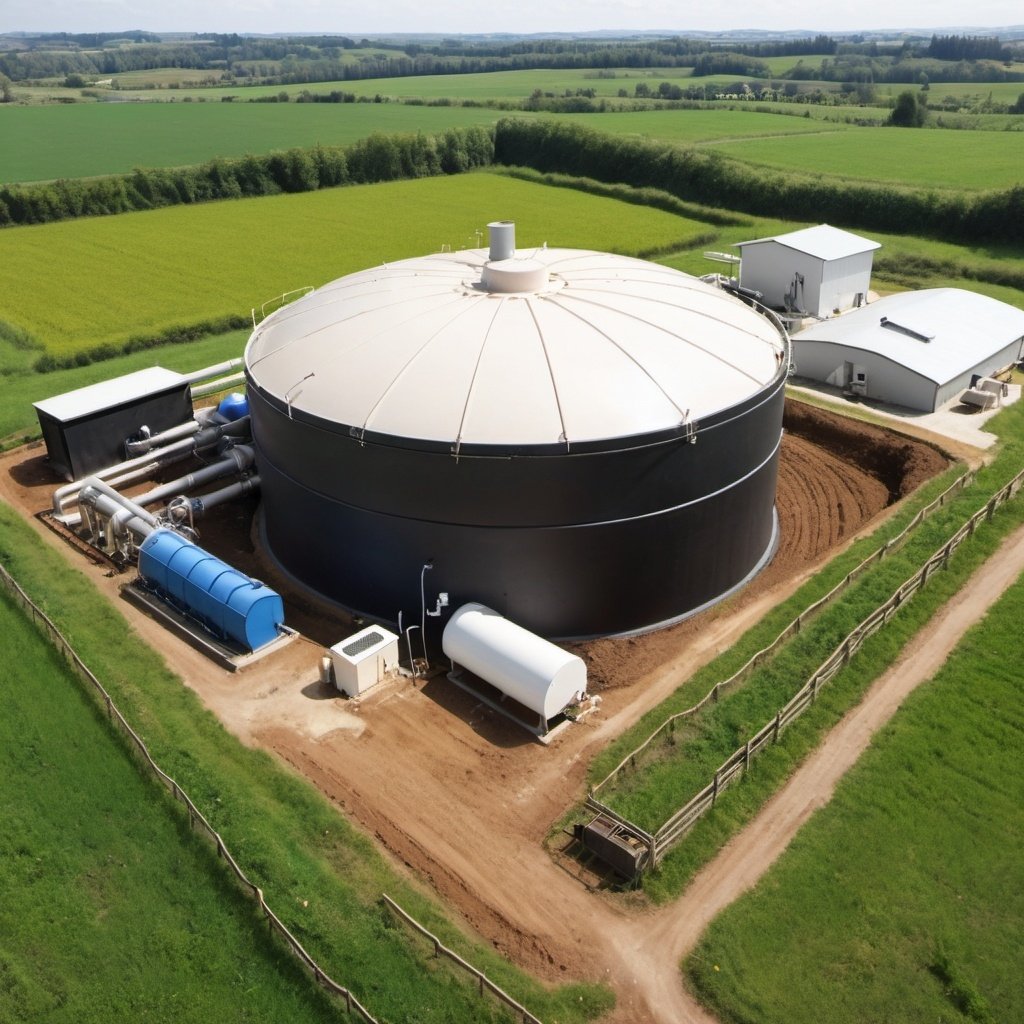Agricultural Waste Treatment

Anaerobic digestion plays a significant role in agricultural waste treatment by offering an environmentally friendly method to manage organic residues. Here are some key points explaining its role:
-
Organic Waste Management: Agricultural activities generate substantial amounts of organic waste, including crop residues, animal manure, and food processing by-products. Anaerobic digestion provides a sustainable solution to treat these wastes.
-
Biogas Production: One of the primary benefits of anaerobic digestion is the production of biogas, which is a mixture primarily composed of methane (CH4) and carbon dioxide (CO2). This biogas can be used as a renewable energy source for heat and electricity generation, replacing fossil fuels and reducing greenhouse gas emissions.
-
Nutrient Recycling: Anaerobic digestion processes break down organic matter, converting it into biogas and digestate. The digestate, which is the solid and liquid residue left after digestion, is rich in nutrients like nitrogen, phosphorus, and potassium. It can be used as a biofertilizer, returning valuable nutrients to the soil and closing nutrient loops in agriculture.
-
Pathogen Reduction: The anaerobic digestion process operates at elevated temperatures, typically between 35°C to 55°C (95°F to 131°F), which helps in reducing pathogens present in raw manure and other agricultural residues. This makes the resulting digestate safer to handle and apply to fields.
-
Odor Control: By converting organic matter into biogas, anaerobic digestion helps mitigate the odor issues associated with untreated agricultural waste. This is particularly beneficial for livestock operations where manure management is a concern.
-
Environmental Benefits: Implementing anaerobic digestion systems in agriculture contributes to environmental sustainability by reducing methane emissions from decomposing organic waste and by providing renewable energy. It also helps in achieving waste reduction and resource efficiency goals.
-
Policy Support: Many governments and environmental agencies promote anaerobic digestion as a part of their waste management and renewable energy policies. Financial incentives and subsidies may be available to encourage farmers and businesses to adopt anaerobic digestion technologies.